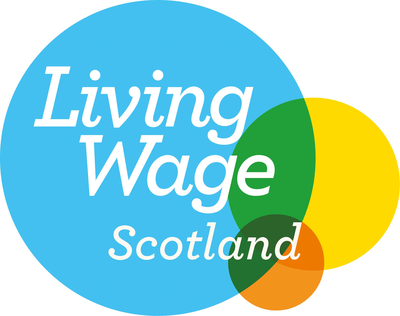Analysis shows greater take up of real Living Wage could boost Scotland’s economy by £89m.
If just a quarter of Scotland’s low earners saw their pay raised to the real Living Wage based on everyday needs, a subsequent increase in wages, productivity and spending could deliver an £89m economic boost to Scotland’s economy, according to new research published by the Living Wage Foundation and the Smith Institute.
The report found if low paid workers were lifted onto a Living Wage of £9.50 an hour, those uplifted would secure an annual pay rise of £520 on average.
Glasgow city region would be the biggest beneficiary, seeing an almost £30m boost. A number of local authority areas would also benefit, including Edinburgh (£7m), Aberdeen (£3m) and Dundee (£1.8m)
Scotland now has the lowest proportion of employee jobs paid below the Living Wage (15.2 per cent) of all UK regions. However, that means around 350,000 people are still paid below the real Living Wage and are unable to meet their everyday needs.
Peter Kelly, Director of The Poverty Alliance – Scotland’s anti-poverty network said:
“Too many workers across Scotland are in the grip of in-work poverty, and the real Living Wage can loosen that grip. We know that the real Living Wage is good for workers, and good for business, and new evidence suggests significant financial gains for local economies too. We encourage more employers to engage with our Living Wage Scotland programme on becoming accredited as Living Wage employers, and we encourage key local institutions to consider ways they can do more to ensure decent pay and conditions are at the heart of their local labour market.”
Graham Griffiths, Director of the Living Wage Foundation, said:
“Everyone in Scotland and throughout the UK has been affected during the crisis, but the real Living Wage offers a clear way to now recover and rebuild with stronger foundations – making Scotland’s economy even more vibrant and productive than before the pandemic, while also ensuring the country’s low paid aren’t left behind. Scotland’s workers and families need jobs that meet their everyday needs and allow them to thrive, while its’ businesses need healthy and motivated workers unburdened by the stress of low pay – and local consumers with sufficient wages to stimulate economic growth. The Living Wage provides all of this and more and must now be a priority for those looking to revitalise the Scottish economy through and beyond the pandemic”.
Paul Hunter, Deputy Director of the Smith Institute, said:
“The Living Wage not only transforms the lives of low paid workers and improves business performance, but also provides a growth dividend for local economies. As we exit the worst of the pandemic, increased Living Wage coverage can boost spending and support a wage-led recovery in our towns and cities.”
Calls to action:
The Living Wage Foundation has called on metro mayors and local authorities looking to recover from the Covid crisis to develop action groups to drive Living Wage take up in their towns, cities and regions, and to integrate the Living Wage into their economic development strategies. It recommends that they:
- Become accredited Living Wage employers
- Set clear targets for Living Wage take up in their cities and regions, and develop a plan with other key local employers for how these will be met
- Use their powers of planning and public procurement to encourage more local employers to commit to ensure their staff earn a real Living Wage
- Make support for business development and investment in skills contingent on firms paying a wage their staff can live on.
- Investigate the potential to create new real Living Wage buildings, zones and hubs in key public spaces.
